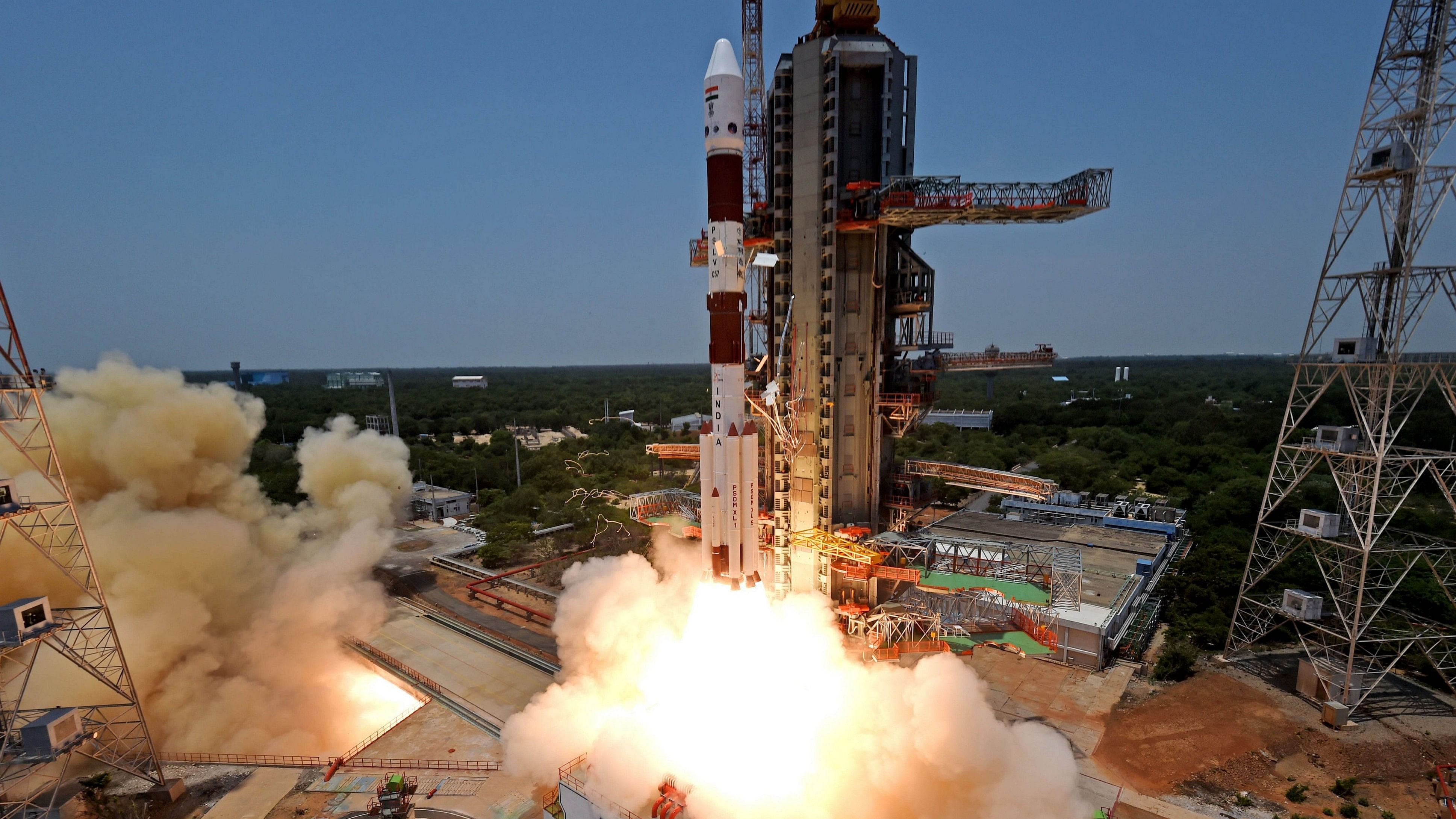
Image used for representative purpose.
Credit: PTI File Photo
Bengaluru: The significance of third-party legal liability and legislative frameworks that mandate non government entities (NGEs) to provide insurance coverage for satellite launches were among the key themes of a report released by space sector think tank Spaceport Sarabhai here on Friday.
The report – 'Financial risk coverage of India’s commercial space launch industry: Need for developing insurance and reinsurance capabilities' – was authored by Eshaan Bansal, a research fellow at Spaceport Sarabhai. Highlighting uncertainty in the industry set off by a "lack of clarity" on issues pertaining to liability and insurance, the report noted that the absence of regulatory systems made the state liable to pay in the event of a major loss.
Presenting the report, Bansal, a Mumbai-based attorney, said third-party liability in space insurance held more legal relevance because the international law regime – which draws on five major international space treaties – stipulated that states were internationally liable for any accident caused during space activities, even those involving NGEs.
The report recommended an insurance approach for India’s space sector that involves regulating through legislation and describing the extent of the liability obligations in the legislation, making them enforceable in a court of law.
The recommendations come against the backdrop of heightened risk to space launches due to the increasing presence of satellites and debris.
Susmita Mohanty, director general, Spaceport Sarabhai, said insurance in the space sector was more significant in the context of debris and the crowding of the low earth orbit. Pointing to statistics released by the European Space Agency (ESA), she said 130 million space debris objects in the 1 mm - 1 cm range were in orbit. A December 2023 report by the ESA said one million debris objects in the 1 cm - 10 cm range and 36,500 debris objects larger than 10 cm were in orbit.